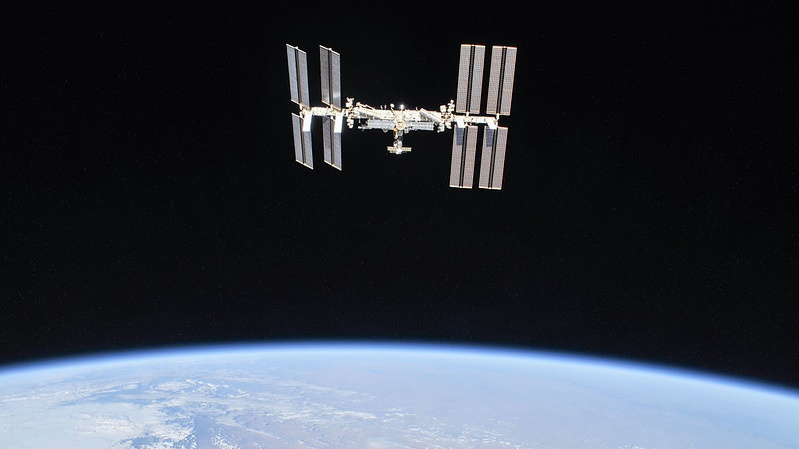
Aboard the International Space Station, there's a compact lab about the size of a small refrigerator that makes some of the coldest stuff in the universe. It's called the Cold Atom Lab, and for some time, scientists have been using this chamber to research the strange quantum properties of atoms in microgravity. But on Wednesday (Nov. 15), they announced they've reached a milestone.
Operated remotely by a team with NASA's Jet Propulsion Laboratory (JPL) in California, the Cold Atom Lab officially generated a quantum gas containing two species of atoms. This could ultimately open the door for totally new space-based experiments in quantum chemistry.
When thinking about states of matter, gases, liquids, solids and plasmas are the four well known ones — but there's also an exotic fifth state of matter, the Bose-Einstein condensate, that was first discovered in the 1990s.
This state hasn't been found in nature, but scientists can create it. Bose-Einstein condensates are generated in ultracold labs like the Cold Atom Lab, where lasers or magnets help chill a cloud of atoms close to absolute zero, or -459 degrees Fahrenheit (-273 degrees Celsius). That's the coldest temperature possible in the universe. In this state, atoms slow down, their edges blend together, and scientists can observe quantum effects that are usually very hard to investigate.
Related: Antimatter responds to gravity like Einstein predicted, major CERN experiment confirms
On Earth, gravity causes Bose-Einstein condensates to dissipate once the super-chilling magnets or lasers in the experiment chamber are shut off. This, however, wouldn't happen in the microgravity environment of space. As such, scientists created Bose-Einstein condensates in the Cold Atom Lab for the first time in 2018, the year the chamber was installed on the ISS. And in the years since, they have studied the phenomenon to great effect.
But now, the researchers have shown they can create such quantum gas with not just one, but rather two types of atoms. In this case, they achieved the feat with a cloud of potassium-rubidium. According to a JPL announcement, future work with this kind of quantum gas could be used to help develop space-based quantum technologies that already exist on Earth.
"We could make sensors that are extremely sensitive to small rotations and essentially use these cold atoms in the Bose-Einstein condensate to make gyroscopes," Nicholas Bigelow, a professor of physics and optics at the University of Rochester, said in a statement. He is a co-author of the new findings.
"These gyroscopes could give us a fixed reference point in space that could be used for deep space navigation," Bigelow said. "We're also developing a number of things that could lead to better clocks in space, which are crucial to so many things in modern life such as high-speed internet and GPS."
The researchers also think future experiments in the Cold Atom Lab could help them test the equivalence principle, central to Albert Einstein’s theory of general relativity. This principle holds that gravity must affect all objects the same way no matter their masses. In other words, a feather and a brick should fall at the same rate — at least in a vacuum, where there's no friction.
Scientists have been having a hard time resolving this principle with the laws of quantum mechanics, which describe how the smallest known objects in the universe behave. They might be able to test it with more precision in quantum experiments in space.
A paper detailing these findings was published on Nov. 15 in the journal Nature.
Update 11/17: There are known states of matter beyond the five mentioned here. This article was adjusted to reflect that.







